Who's In The Fold?
APTC's Presence in Accredited Clinical and
Counseling Programs
Bob Hatcher, Ph.D. &
Lauren Gardner
How many programs in
clinical and counseling psychology have practicum training
clinics associated with them?
Building on the work of Eric Sauer and his graduate
student, graduate assistant Lauren Gardner and I did a
comprehensive review of the websites of APA accredited programs
in clinical and counseling psychology, looking for associated
clinics. The data are complicated a bit by programs that offer
multiple degrees (PsyD and PhD), but overall the picture is
this:
242 Clinical Programs
62 PsyD Clinical Programs
180 PhD Clinical Programs
162 CUDCP Member Programs
63 NCSPP Member Programs
64 Counseling Programs
3 PsyD Counseling Programs
Of the 242 clinical
programs, 161 (67%) have clinics, and 13 (5%) have what we have
called “sort of” clinics consisting primarily of loosely grouped
practicum experiences led by individual faculty members (e.g.,
an autism practicum, a rehabilitation hospital practicum, etc.).
Some of the associated clinics (about 20%) are larger operations
(e.g., counseling centers) that are nevertheless the primary
providers of practicum training for the graduate program.
We found that the percentage of programs with clinics varied in
interesting ways:
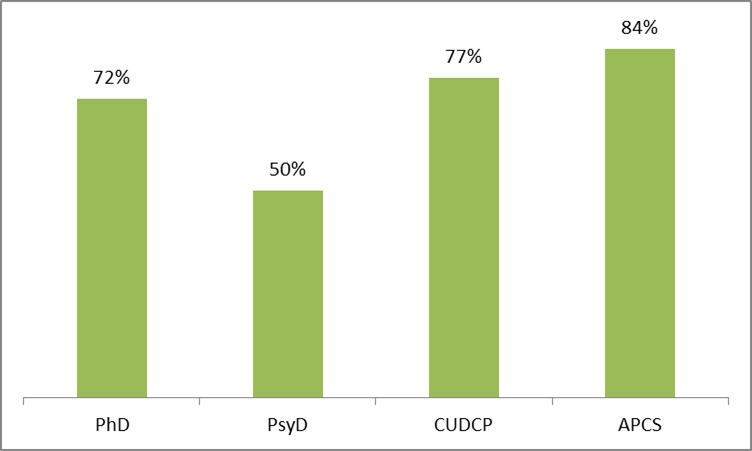
CUDCP
(Council of University Directors of Clinical Psychology)
APCS
(Academy of Psychological Clinical Science)
It appears that PsyD programs rely more on external practicum
experiences, and APCS members rely more on department or program
based clinics.
Counseling programs are less
likely overall to have a specifically designated clinic:
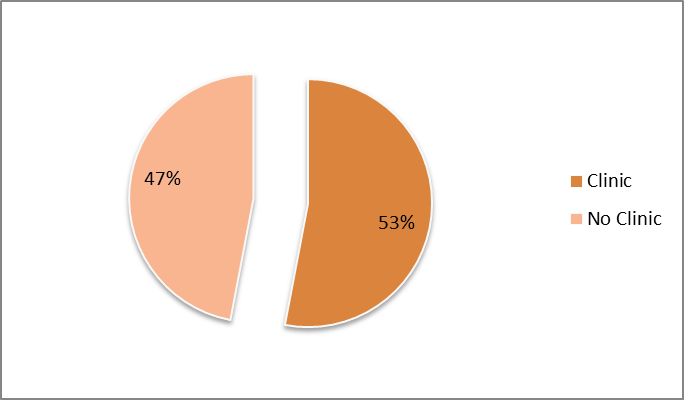
Many counseling programs
do not identify a primary practicum site; many of these seem to
rely on their universities’ counseling centers for practicum
training.
Which Clinics are Members of
APTC?
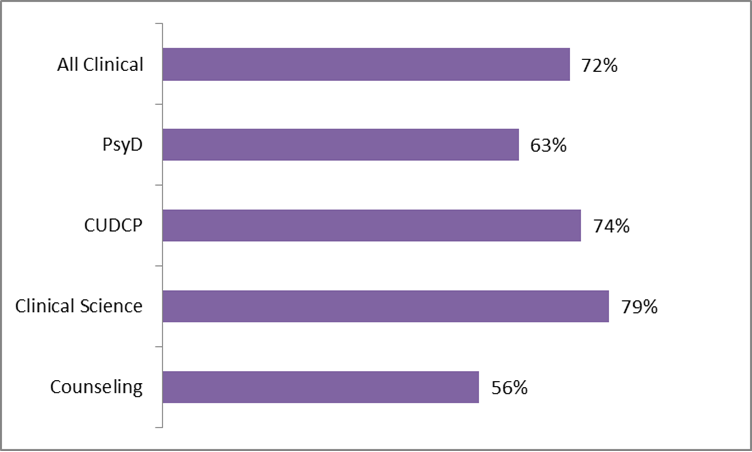
What Names do we use for our Clinics?
The most typical names
are:
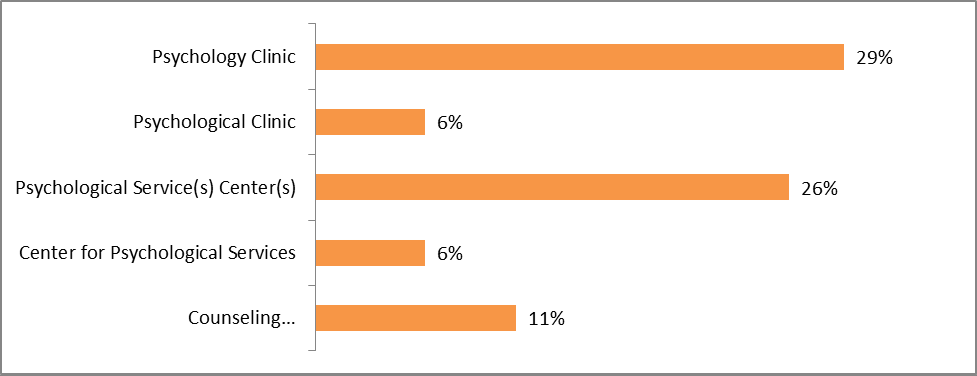
Where are Clinics housed Administratively?
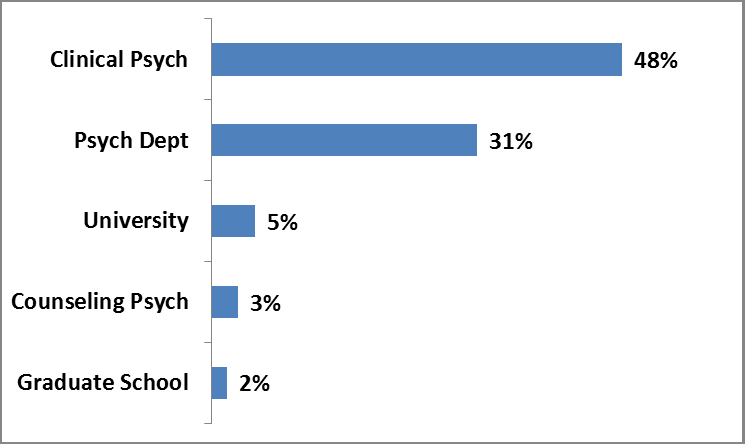
Conclusions
The majority of programs
in clinical and counseling psychology have associated training
clinics. A large majority of clinics of accredited programs in
clinical psychology are members of APTC, although PsyD programs
are relatively less well represented. A smaller percentage of
counseling program clinics are members. More science-based
programs seem to have clinics than do programs oriented more
toward practice. Five groups of names characterize 75% of clinics; 25% have
other names. Our clinics are primarily located within the
program or department, although a small percentage are located
in other university units.